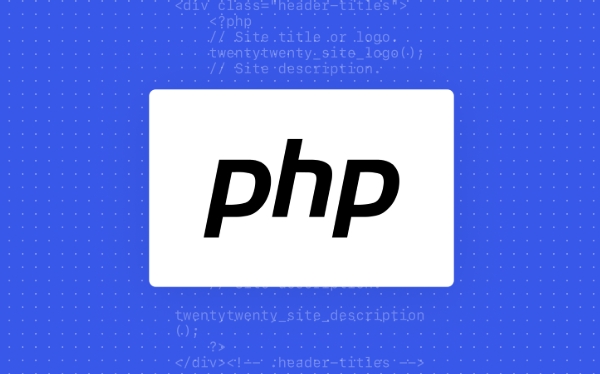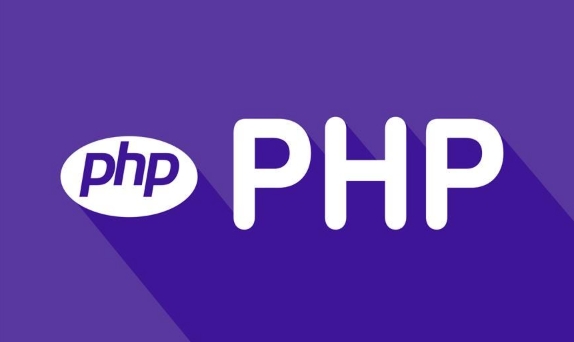Navigating the Nuances of Character Encoding in PHP
Jul 25, 2025 pm 05:44 PMTo correctly handle character encoding in PHP, it is necessary to ensure that UTF-8 is used consistently at all levels; 1. Understand the importance of UTF-8, which is a web standard that supports multilingual and emojis; 2. Set correct encoding in the PHP environment, including saving the file as UTF-8 without BOM, using the mbstring function instead of ordinary string functions, and setting mb_internal_encoding and mb_http_output to UTF-8; 3. The database needs to use the utf8mb4 character set and corresponding sorting rules, specify CHARACTER SET utf8mb4 COLLATE utf8mb4_unicode_ci when creating the table, and ensure that the connection layer encoding is consistent through the charset parameter in SET NAMES utf8mb4 or DSN; 4. When output, the encoding is declared by header('Content-Type: text/html; charset=UTF-8') or <meta charset="UTF-8"> in HTML. When outputting JSON, use JSON_UNESCAPED_UNICODE to avoid escape; 5. When processing user input, verify whether it is UTF-8 encoding. You can use mb_check_encoding() to detect and use Normalizer::normalize() for standardization. Only when all links such as files, databases, connections, and output are uniformly used, characters can be displayed correctly to avoid garbled code problems.

Handling character encoding properly in PHP might seem like a minor detail—until things start showing up as question marks, black diamonds, or garbled text. If you've ever seen in your output or form submissions, you've hit a character encoding wall. Let's break down the key areas where encoding matters in PHP and how to manage it correctly.

1. Understand UTF-8 and Why It Matters
UTF-8 is the de facto standard for web applications. It supports virtually every character from all major languages and is backward-compatible with ASCII. If your application deals with international users, content in multiple languages, or even emojis, UTF-8 is non-negotiable.
The problem arises when systems assume a different encoding (like ISO-8859-1 or Windows-1252) and misinterpret UTF-8 bytes. This mismatch causes mojibake—garbled text like “Café” turning into “Café.”

Key point : Ensure everything—from your PHP files to your database to your HTML output—uses UTF-8 consistently.
2. Set the Correct Encoding in Your PHP Environment
PHP itself doesn't enforce encoding, but you can guide it:

Save PHP files as UTF-8 without BOM
Your source code files should be saved in UTF-8. Avoid the Byte Order Mark (BOM), which can cause output issues (eg, headers already sent errors).-
Use
mbstringfunctions instead ofstrlen,substr, etc.
Standard string functions treat strings as byte sequences, which breaks with multi-byte characters. Use the multibyte equivalents:mb_strlen($text, 'UTF-8'); mb_substr($text, 0, 10, 'UTF-8'); mb_strtoupper($text, 'UTF-8');
Set the internal encoding (optional but helpful)
Inphp.inior at runtime:mb_internal_encoding('UTF-8'); mb_http_output('UTF-8');
This tells
mbstringto assume UTF-8 unless specified otherwise.
3. Database Encoding Must Match
Even if PHP handles UTF-8 correctly, your database might not.
Create tables with UTF-8 collation
Useutf8mb4in MySQL (notutf8, which only supports 3-byte UTF-8 and breaks 4-byte characters like emojis):CREATE TABLE users ( name VARCHAR(100) ) CHARACTER SET utf8mb4 COLLATE utf8mb4_unicode_ci;Set the connection encoding
Tell MySQL to use UTF-8 for the session:$pdo->exec("SET NAMES utf8mb4"); // Or use charset in DSN: $pdo = new PDO('mysql:host=localhost;dbname=test;charset=utf8mb4', $user, $pass);This ensures data is sent and received in UTF-8.
4. Output and Headers
Your HTML output must declare the correct encoding:
header('Content-Type: text/html; charset=UTF-8');
Or in HTML:
<meta charset="UTF-8">
Without this, browsers might guess the encoding wrong, especially if the page contains non-ASCII characters.
Also, when outputting JSON, ensure UTF-8:
echo json_encode($data, JSON_UNESCAPED_UNICODE);
JSON_UNESCAPED_UNICODE prevents PHP from escaping non-ASCII characters (eg, turning “café” into “caf\u00e9”), making the JSON more readable and smaller.
5. Handle User Input Carefully
Form submissions can come in any encoding, but modern browsers send UTF-8 if the page is UTF-8. Still, validate:
Filter and sanitize input assuming UTF-8.
Use
mb_check_encoding()to verify:if (!mb_check_encoding($input, 'UTF-8')) { // Handle invalid encoding }Normalize text if needed:
$normalized = Normalizer::normalize($input, Normalizer::FORM_C);
(Requires the
intlextension.)
Basically, the key is consistency: UTF-8 everywhere—files, database, connection, output. When all layers agree, characters flow cleanly. When one layer disagrees, everything breaks silently. It's not flashy, but getting encoding right keeps your app ready for the real, multilingual web.
The above is the detailed content of Navigating the Nuances of Character Encoding in PHP. For more information, please follow other related articles on the PHP Chinese website!

Hot AI Tools

Undress AI Tool
Undress images for free

Undresser.AI Undress
AI-powered app for creating realistic nude photos

AI Clothes Remover
Online AI tool for removing clothes from photos.

Clothoff.io
AI clothes remover

Video Face Swap
Swap faces in any video effortlessly with our completely free AI face swap tool!

Hot Article

Hot Tools

Notepad++7.3.1
Easy-to-use and free code editor

SublimeText3 Chinese version
Chinese version, very easy to use

Zend Studio 13.0.1
Powerful PHP integrated development environment

Dreamweaver CS6
Visual web development tools

SublimeText3 Mac version
God-level code editing software (SublimeText3)

Hot Topics
 How to use PHP to build social sharing functions PHP sharing interface integration practice
Jul 25, 2025 pm 08:51 PM
How to use PHP to build social sharing functions PHP sharing interface integration practice
Jul 25, 2025 pm 08:51 PM
The core method of building social sharing functions in PHP is to dynamically generate sharing links that meet the requirements of each platform. 1. First get the current page or specified URL and article information; 2. Use urlencode to encode the parameters; 3. Splice and generate sharing links according to the protocols of each platform; 4. Display links on the front end for users to click and share; 5. Dynamically generate OG tags on the page to optimize sharing content display; 6. Be sure to escape user input to prevent XSS attacks. This method does not require complex authentication, has low maintenance costs, and is suitable for most content sharing needs.
 PHP creates a blog comment system to monetize PHP comment review and anti-brush strategy
Jul 25, 2025 pm 08:27 PM
PHP creates a blog comment system to monetize PHP comment review and anti-brush strategy
Jul 25, 2025 pm 08:27 PM
1. Maximizing the commercial value of the comment system requires combining native advertising precise delivery, user paid value-added services (such as uploading pictures, top-up comments), influence incentive mechanism based on comment quality, and compliance anonymous data insight monetization; 2. The audit strategy should adopt a combination of pre-audit dynamic keyword filtering and user reporting mechanisms, supplemented by comment quality rating to achieve content hierarchical exposure; 3. Anti-brushing requires the construction of multi-layer defense: reCAPTCHAv3 sensorless verification, Honeypot honeypot field recognition robot, IP and timestamp frequency limit prevents watering, and content pattern recognition marks suspicious comments, and continuously iterate to deal with attacks.
 How to use PHP combined with AI to achieve text error correction PHP syntax detection and optimization
Jul 25, 2025 pm 08:57 PM
How to use PHP combined with AI to achieve text error correction PHP syntax detection and optimization
Jul 25, 2025 pm 08:57 PM
To realize text error correction and syntax optimization with AI, you need to follow the following steps: 1. Select a suitable AI model or API, such as Baidu, Tencent API or open source NLP library; 2. Call the API through PHP's curl or Guzzle and process the return results; 3. Display error correction information in the application and allow users to choose whether to adopt it; 4. Use php-l and PHP_CodeSniffer for syntax detection and code optimization; 5. Continuously collect feedback and update the model or rules to improve the effect. When choosing AIAPI, focus on evaluating accuracy, response speed, price and support for PHP. Code optimization should follow PSR specifications, use cache reasonably, avoid circular queries, review code regularly, and use X
 PHP calls AI intelligent voice assistant PHP voice interaction system construction
Jul 25, 2025 pm 08:45 PM
PHP calls AI intelligent voice assistant PHP voice interaction system construction
Jul 25, 2025 pm 08:45 PM
User voice input is captured and sent to the PHP backend through the MediaRecorder API of the front-end JavaScript; 2. PHP saves the audio as a temporary file and calls STTAPI (such as Google or Baidu voice recognition) to convert it into text; 3. PHP sends the text to an AI service (such as OpenAIGPT) to obtain intelligent reply; 4. PHP then calls TTSAPI (such as Baidu or Google voice synthesis) to convert the reply to a voice file; 5. PHP streams the voice file back to the front-end to play, completing interaction. The entire process is dominated by PHP to ensure seamless connection between all links.
 How to use PHP to combine AI to generate image. PHP automatically generates art works
Jul 25, 2025 pm 07:21 PM
How to use PHP to combine AI to generate image. PHP automatically generates art works
Jul 25, 2025 pm 07:21 PM
PHP does not directly perform AI image processing, but integrates through APIs, because it is good at web development rather than computing-intensive tasks. API integration can achieve professional division of labor, reduce costs, and improve efficiency; 2. Integrating key technologies include using Guzzle or cURL to send HTTP requests, JSON data encoding and decoding, API key security authentication, asynchronous queue processing time-consuming tasks, robust error handling and retry mechanism, image storage and display; 3. Common challenges include API cost out of control, uncontrollable generation results, poor user experience, security risks and difficult data management. The response strategies are setting user quotas and caches, providing propt guidance and multi-picture selection, asynchronous notifications and progress prompts, key environment variable storage and content audit, and cloud storage.
 PHP realizes commodity inventory management and monetization PHP inventory synchronization and alarm mechanism
Jul 25, 2025 pm 08:30 PM
PHP realizes commodity inventory management and monetization PHP inventory synchronization and alarm mechanism
Jul 25, 2025 pm 08:30 PM
PHP ensures inventory deduction atomicity through database transactions and FORUPDATE row locks to prevent high concurrent overselling; 2. Multi-platform inventory consistency depends on centralized management and event-driven synchronization, combining API/Webhook notifications and message queues to ensure reliable data transmission; 3. The alarm mechanism should set low inventory, zero/negative inventory, unsalable sales, replenishment cycles and abnormal fluctuations strategies in different scenarios, and select DingTalk, SMS or Email Responsible Persons according to the urgency, and the alarm information must be complete and clear to achieve business adaptation and rapid response.
 How to use PHP to develop AI-driven advertising delivery PHP advertising performance optimization solution
Jul 25, 2025 pm 06:12 PM
How to use PHP to develop AI-driven advertising delivery PHP advertising performance optimization solution
Jul 25, 2025 pm 06:12 PM
PHP provides an input basis for AI models by collecting user data (such as browsing history, geographical location) and pre-processing; 2. Use curl or gRPC to connect with AI models to obtain click-through rate and conversion rate prediction results; 3. Dynamically adjust advertising display frequency, target population and other strategies based on predictions; 4. Test different advertising variants through A/B and record data, and combine statistical analysis to optimize the effect; 5. Use PHP to monitor traffic sources and user behaviors and integrate with third-party APIs such as GoogleAds to achieve automated delivery and continuous feedback optimization, ultimately improving CTR and CVR and reducing CPC, and fully implementing the closed loop of AI-driven advertising system.
 Beyond the LAMP Stack: PHP's Role in Modern Enterprise Architecture
Jul 27, 2025 am 04:31 AM
Beyond the LAMP Stack: PHP's Role in Modern Enterprise Architecture
Jul 27, 2025 am 04:31 AM
PHPisstillrelevantinmodernenterpriseenvironments.1.ModernPHP(7.xand8.x)offersperformancegains,stricttyping,JITcompilation,andmodernsyntax,makingitsuitableforlarge-scaleapplications.2.PHPintegrateseffectivelyinhybridarchitectures,servingasanAPIgateway






